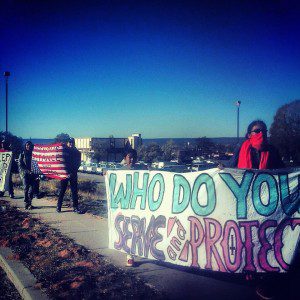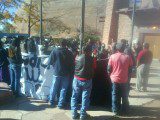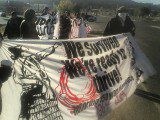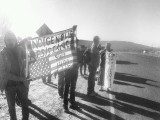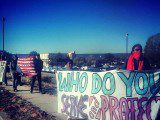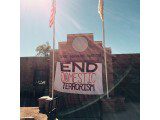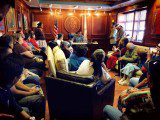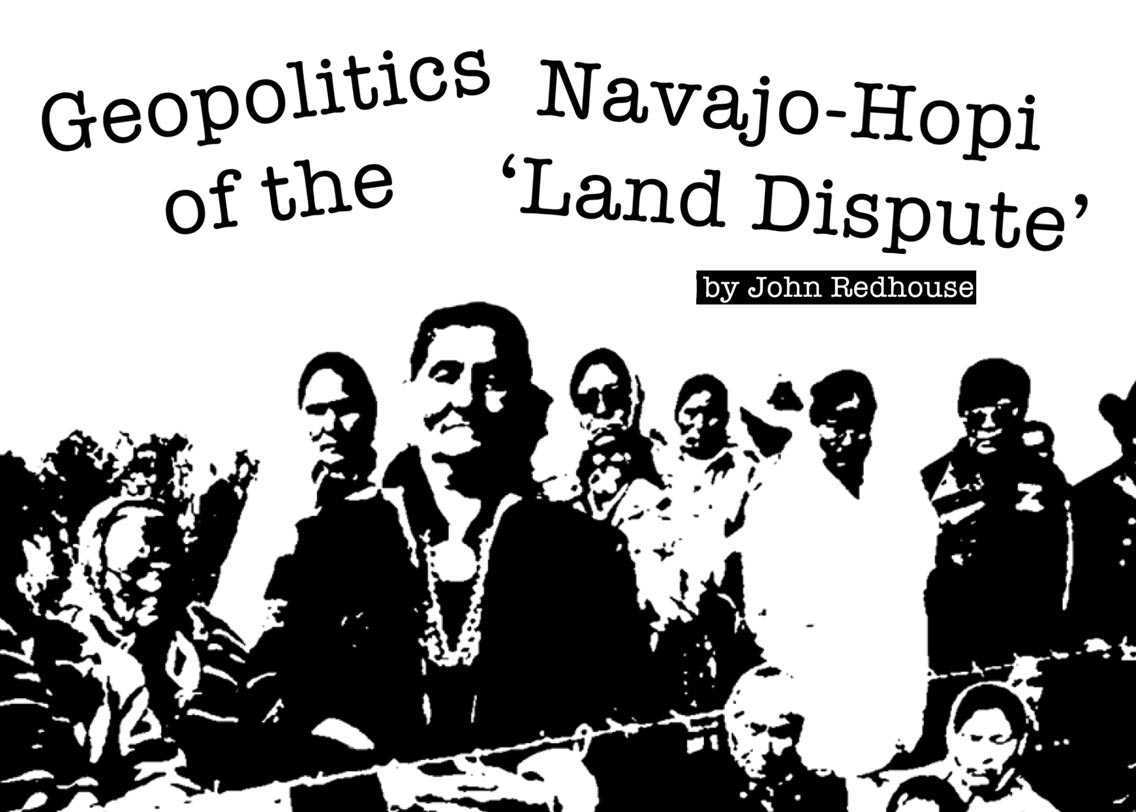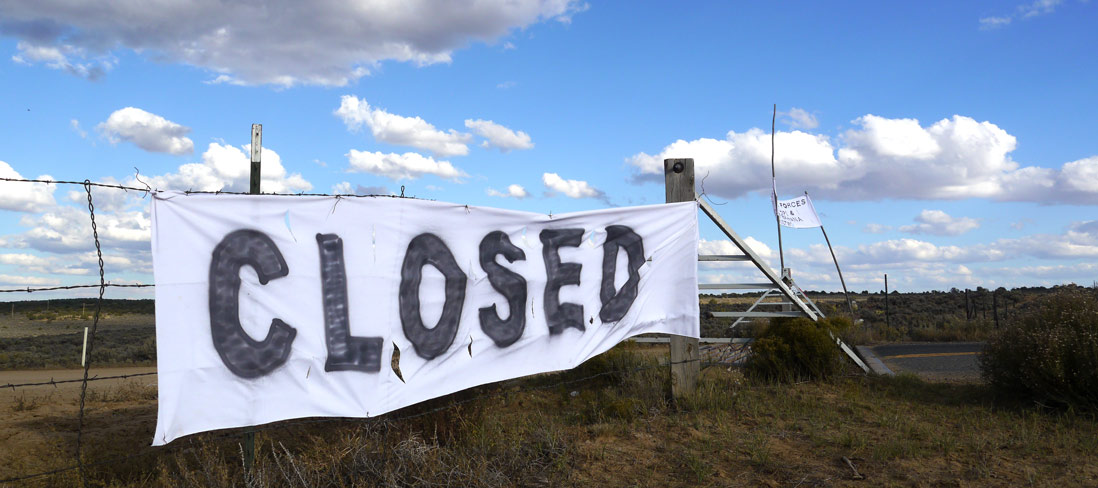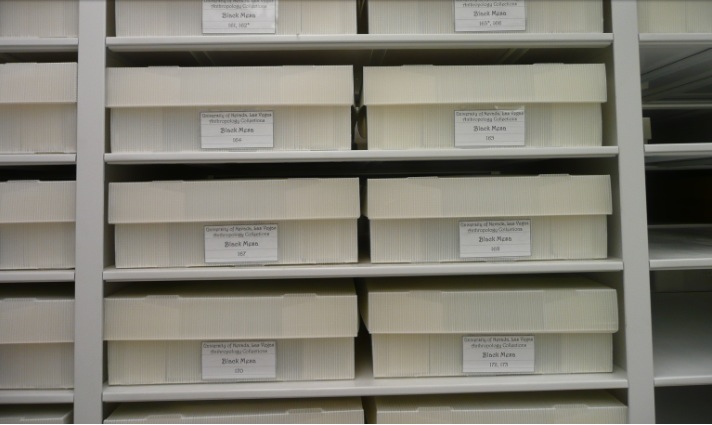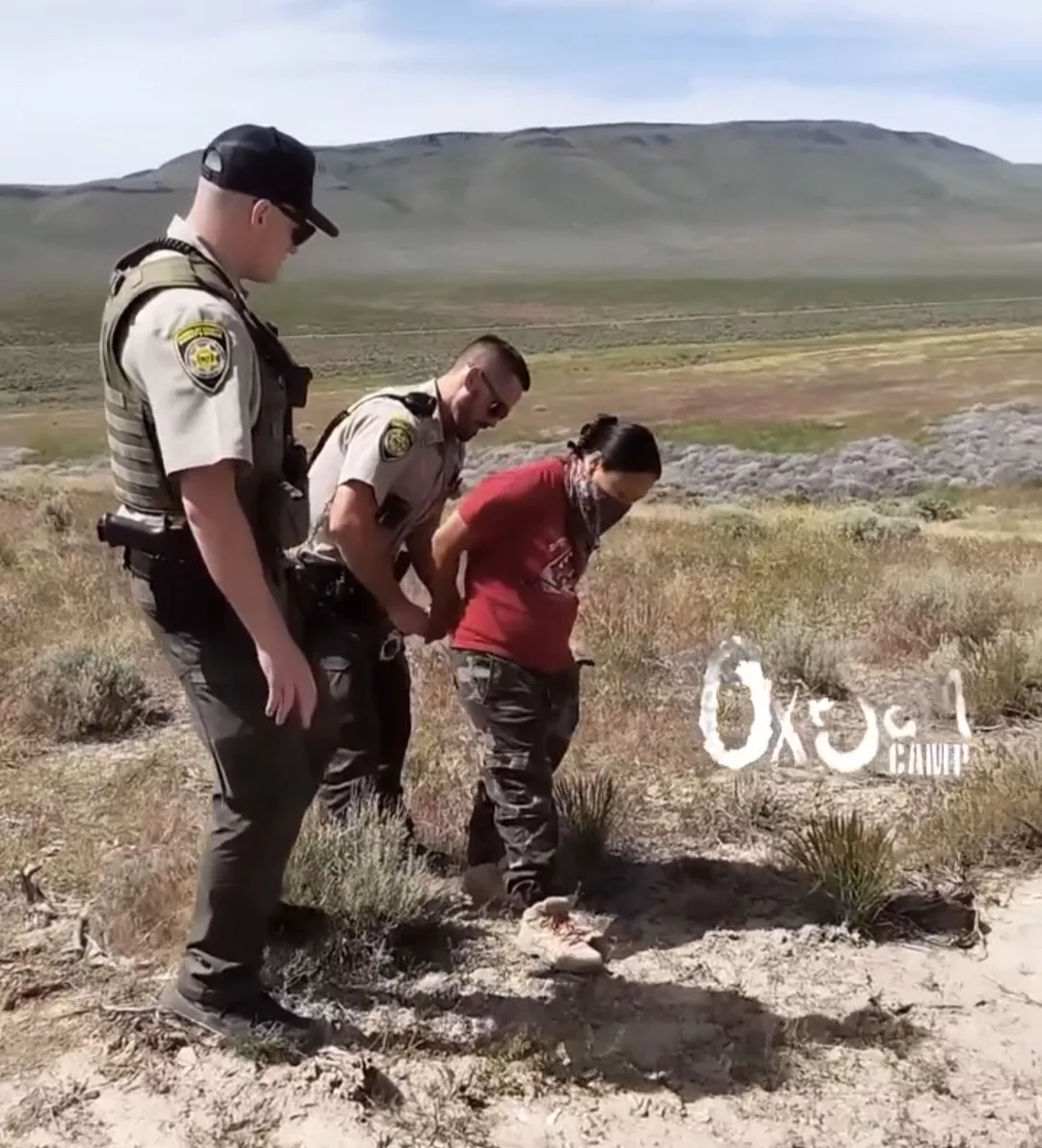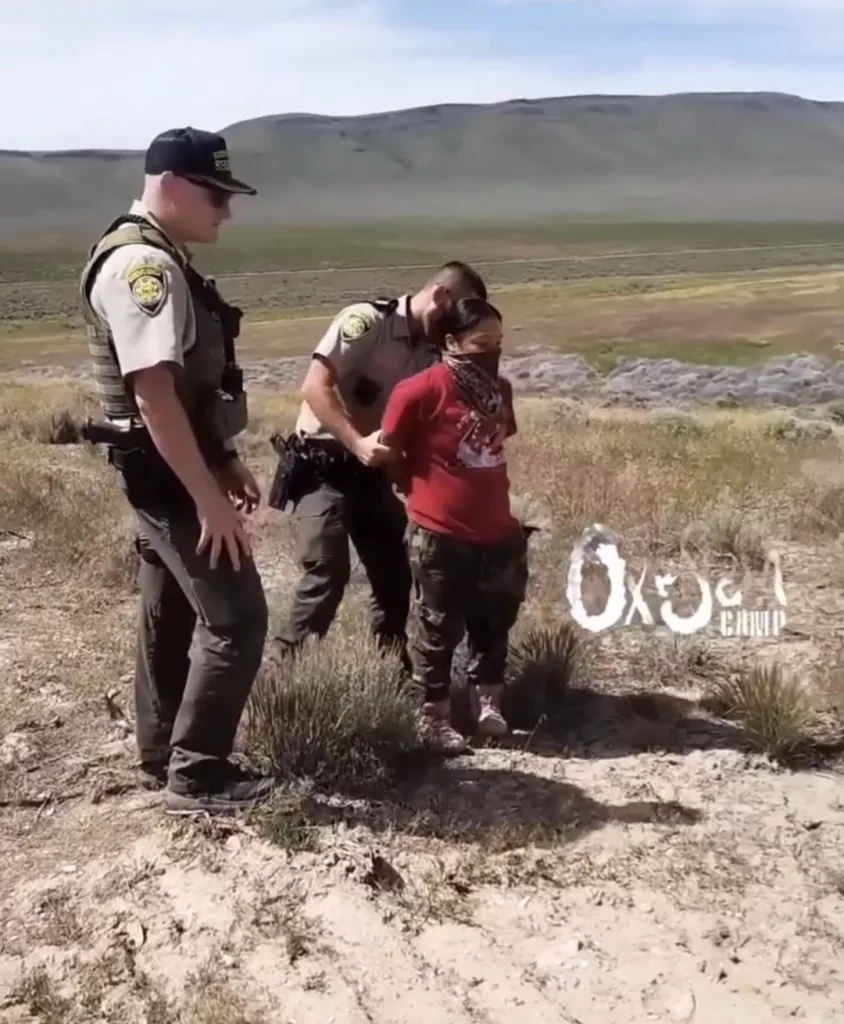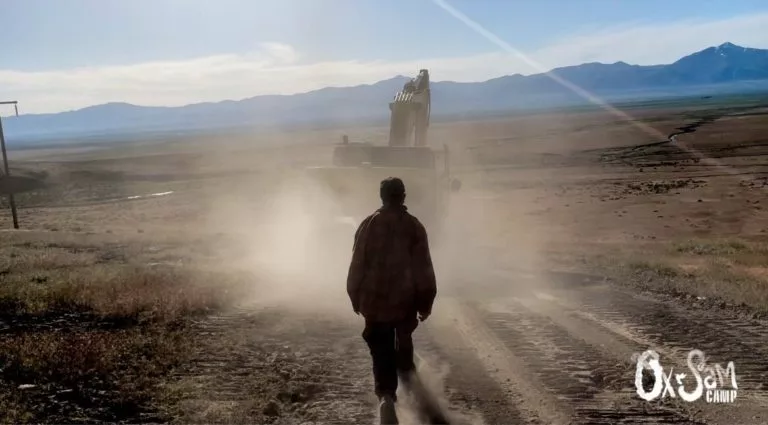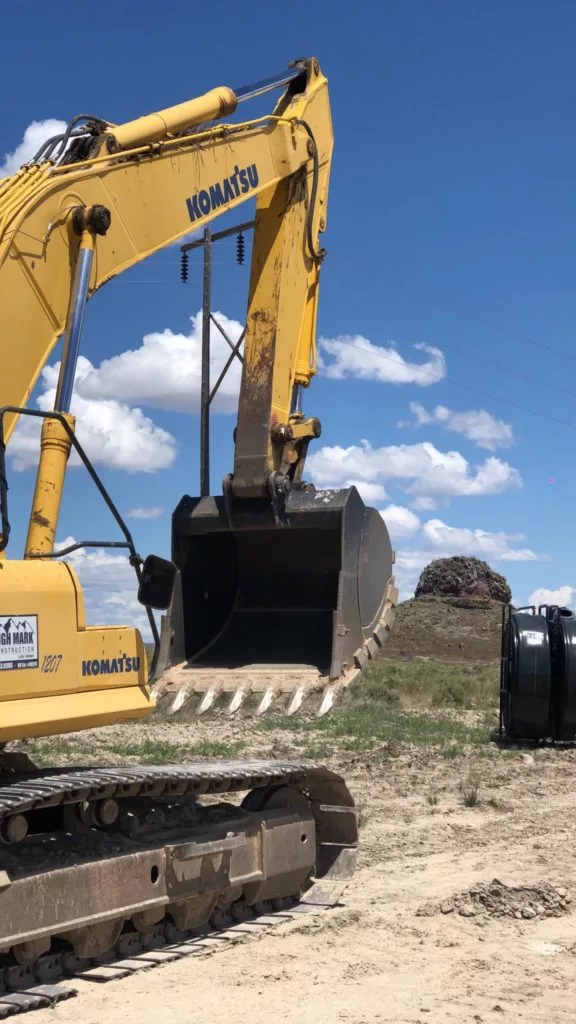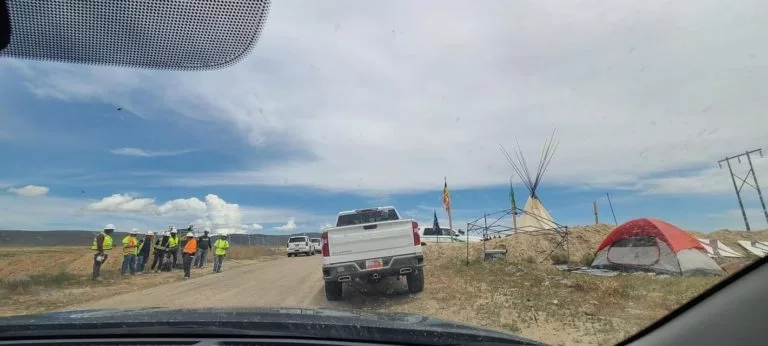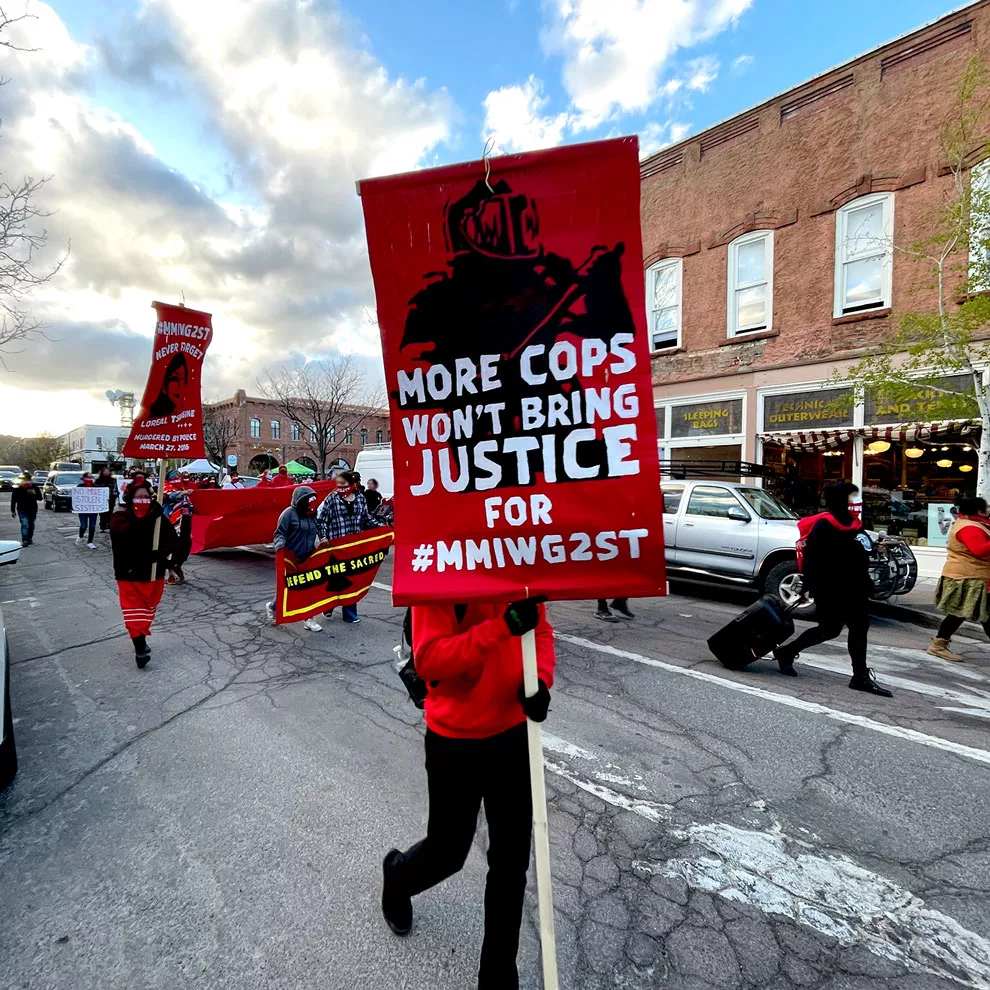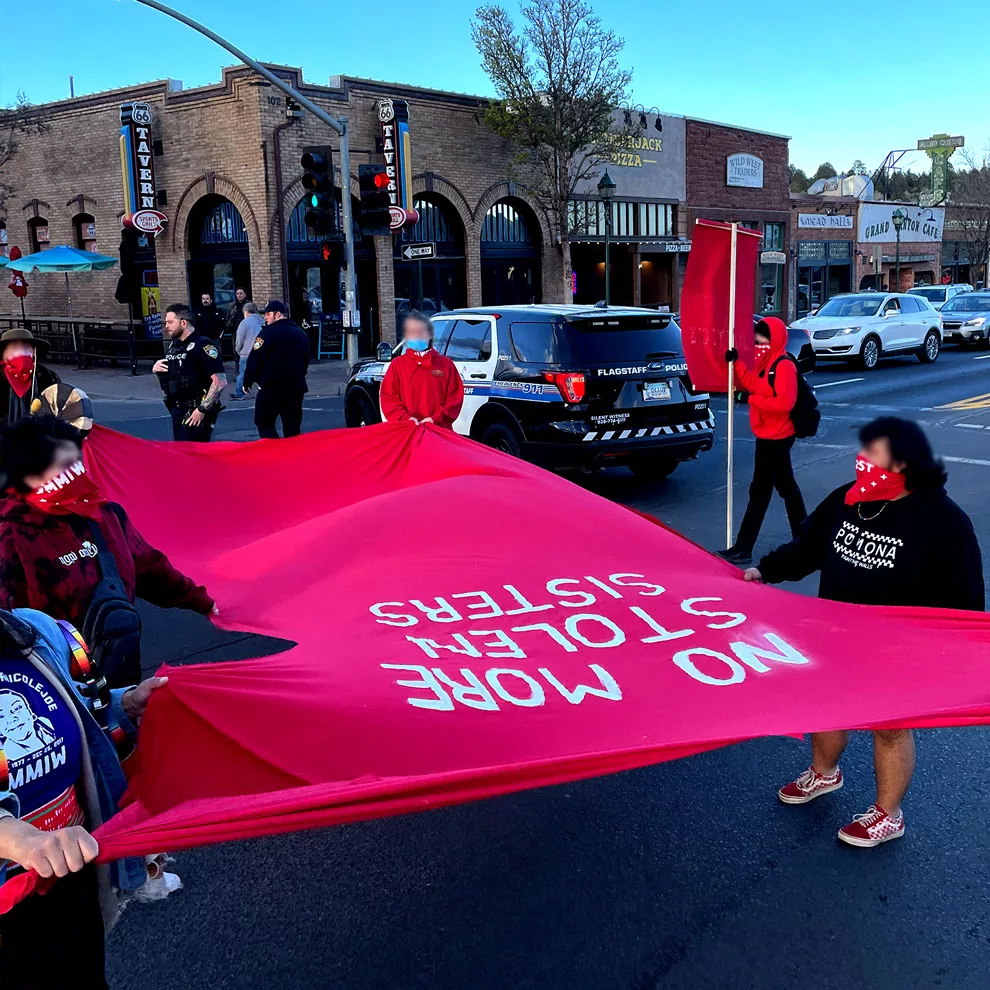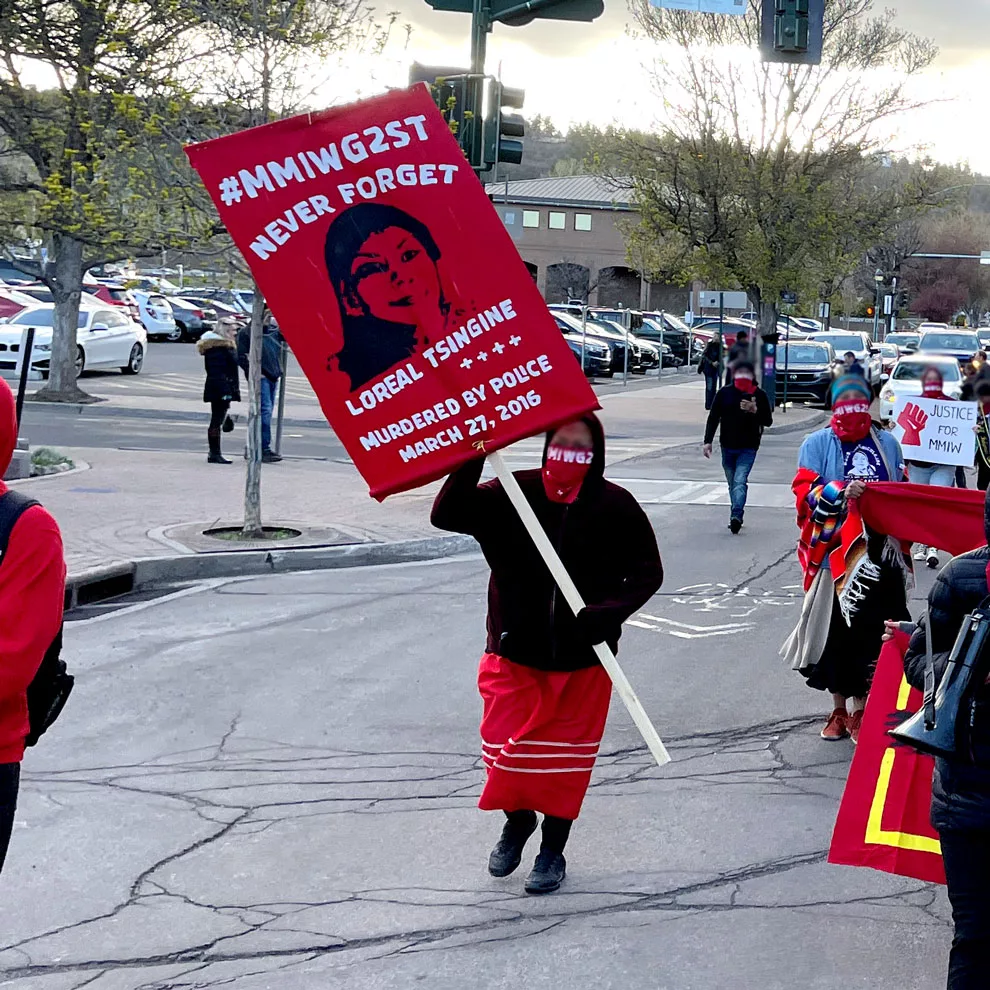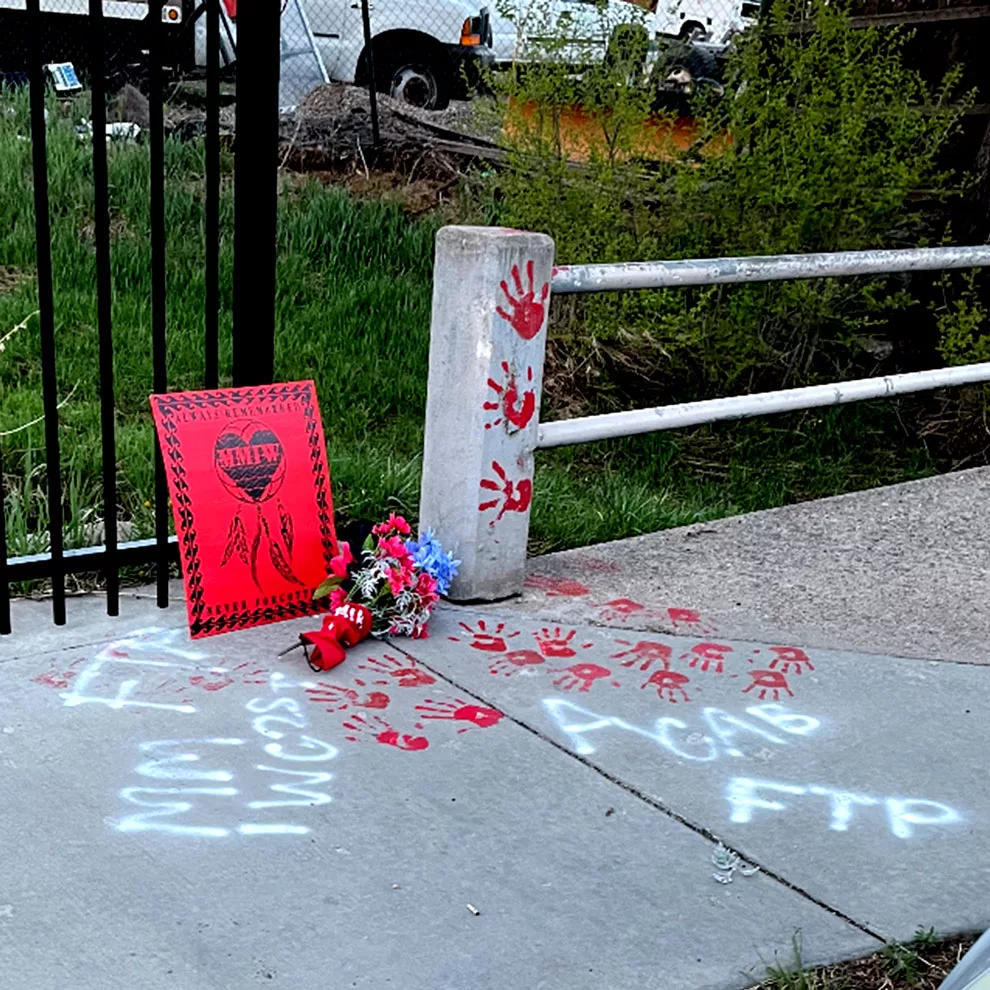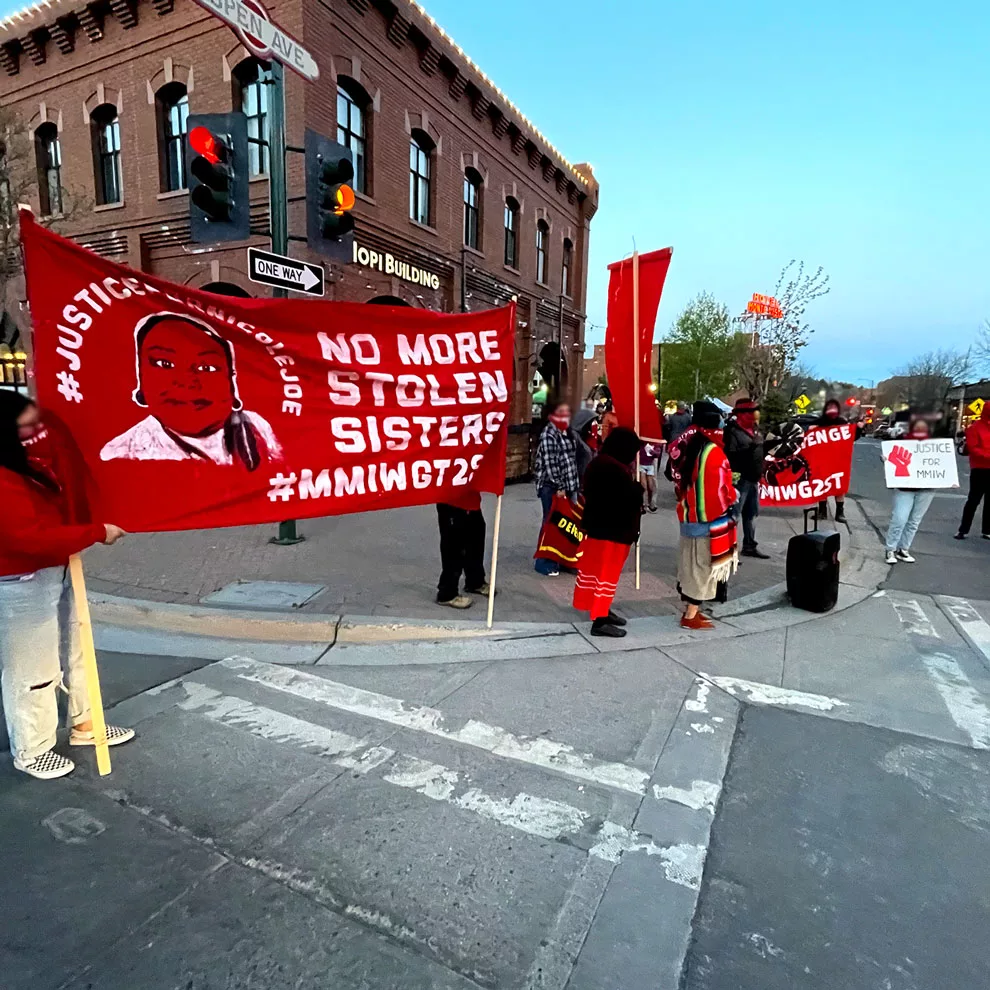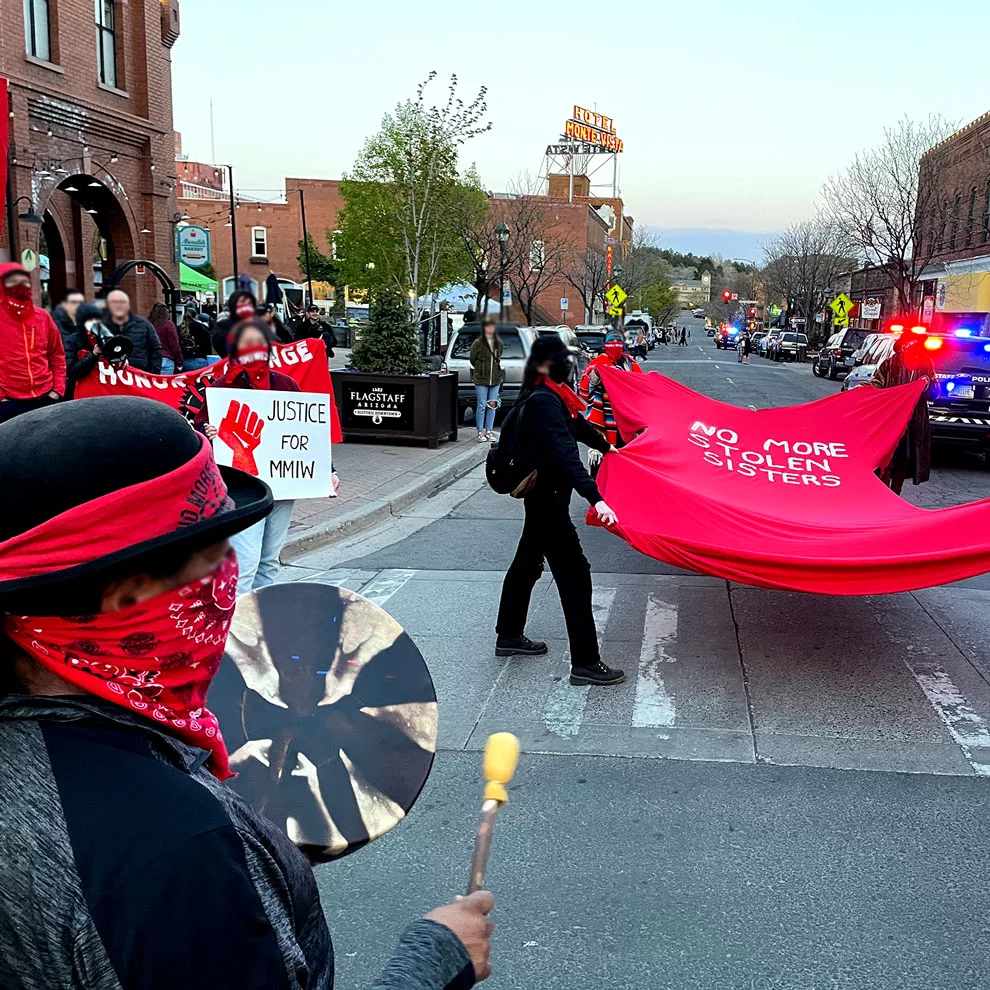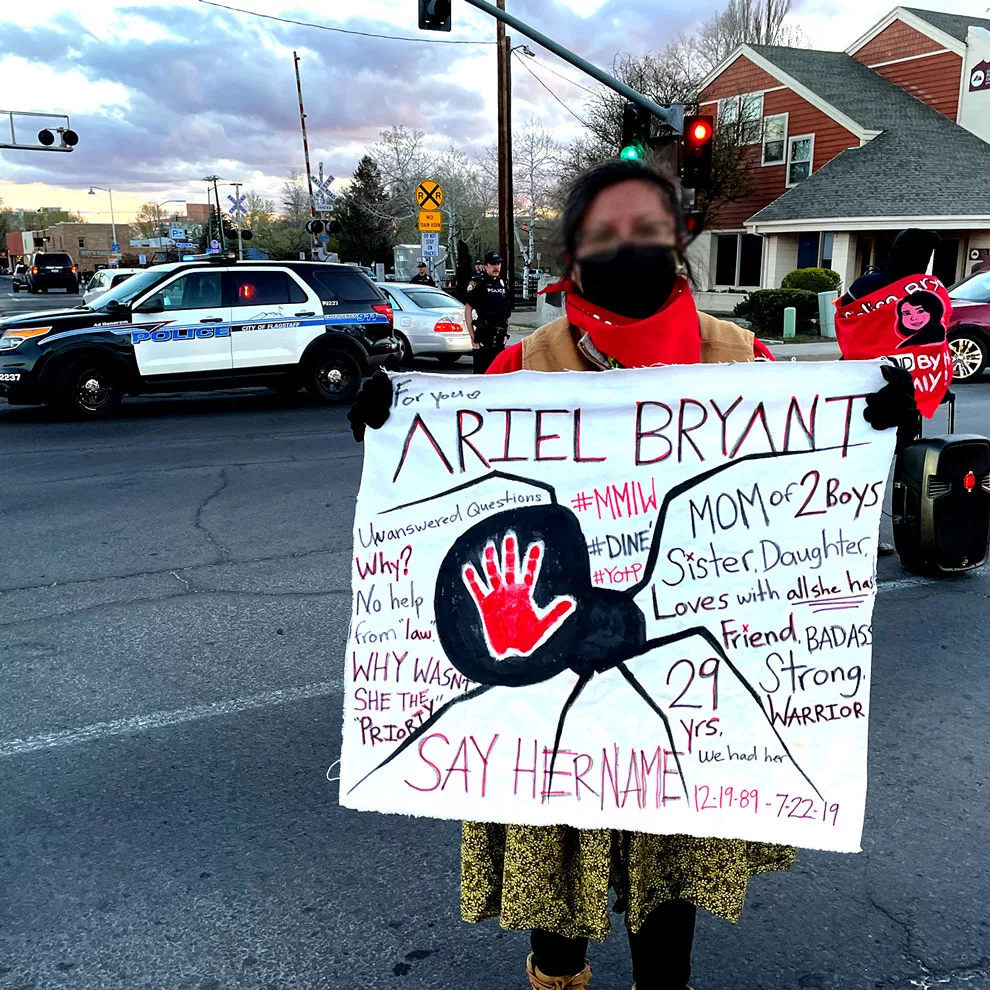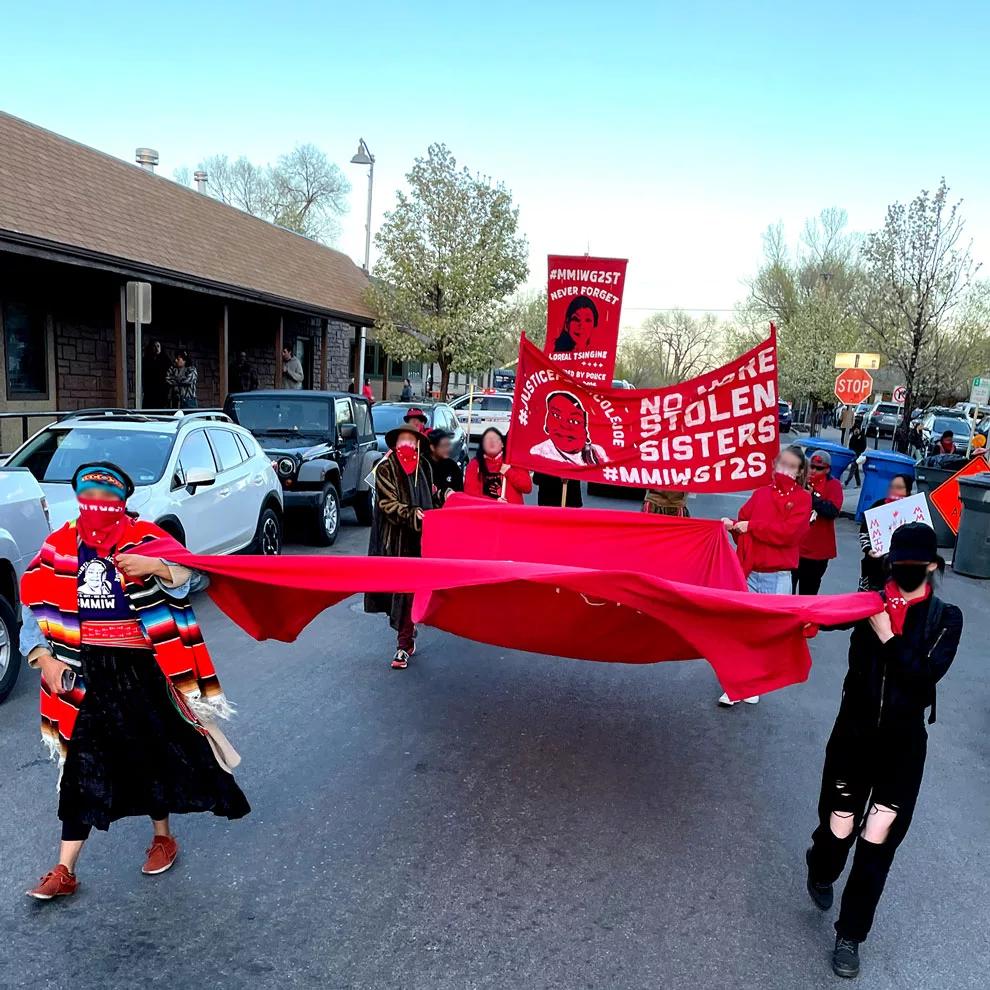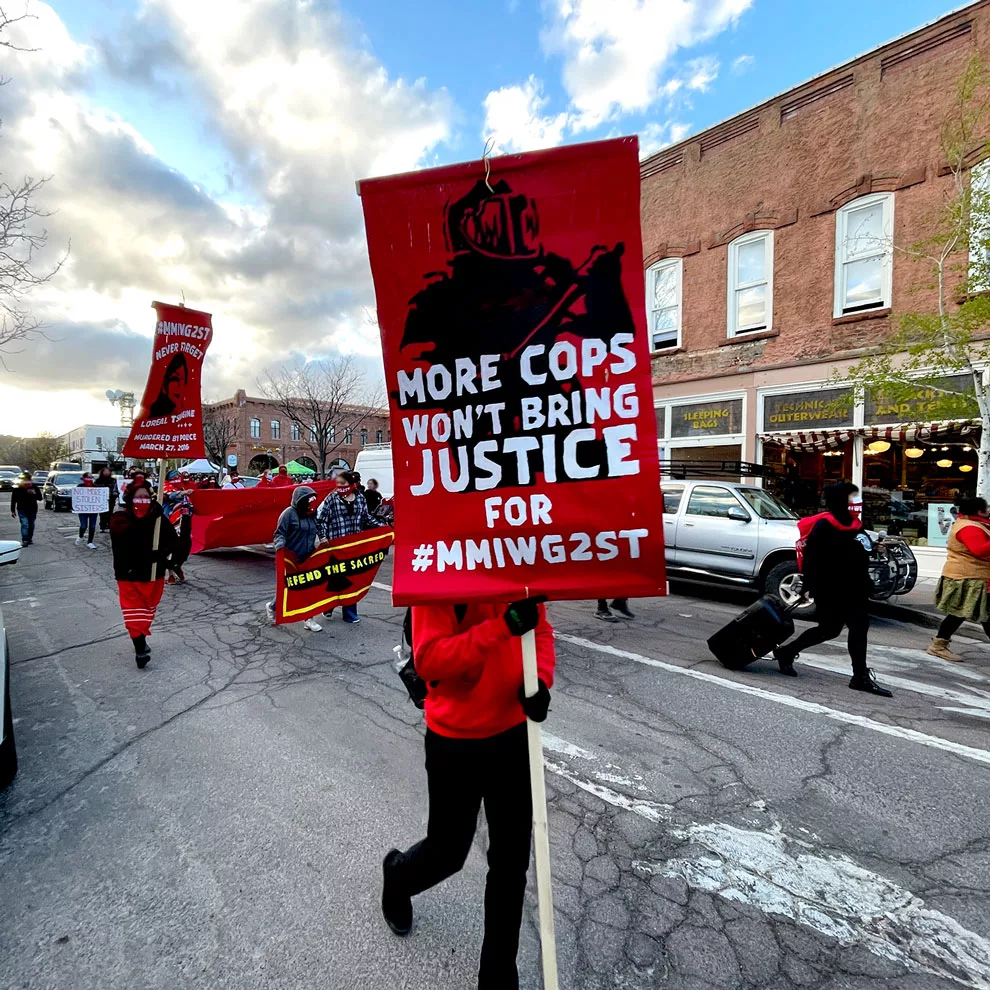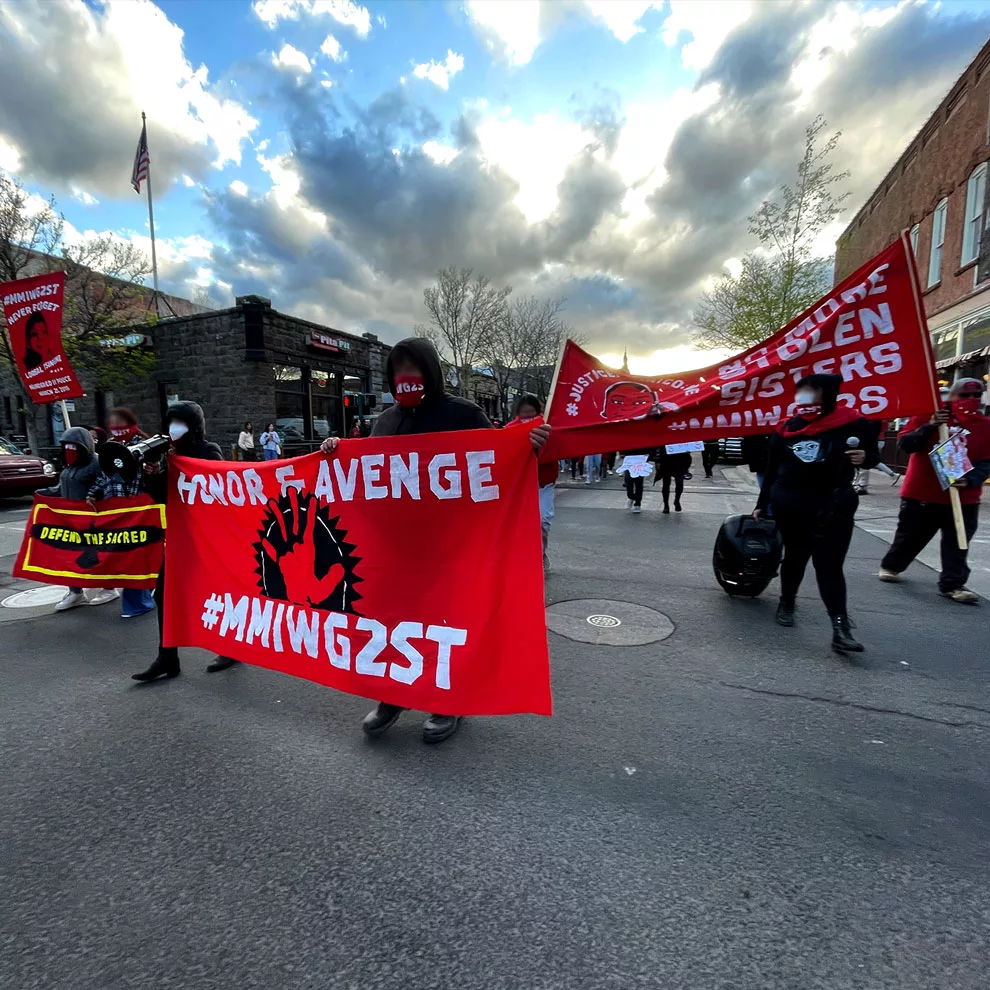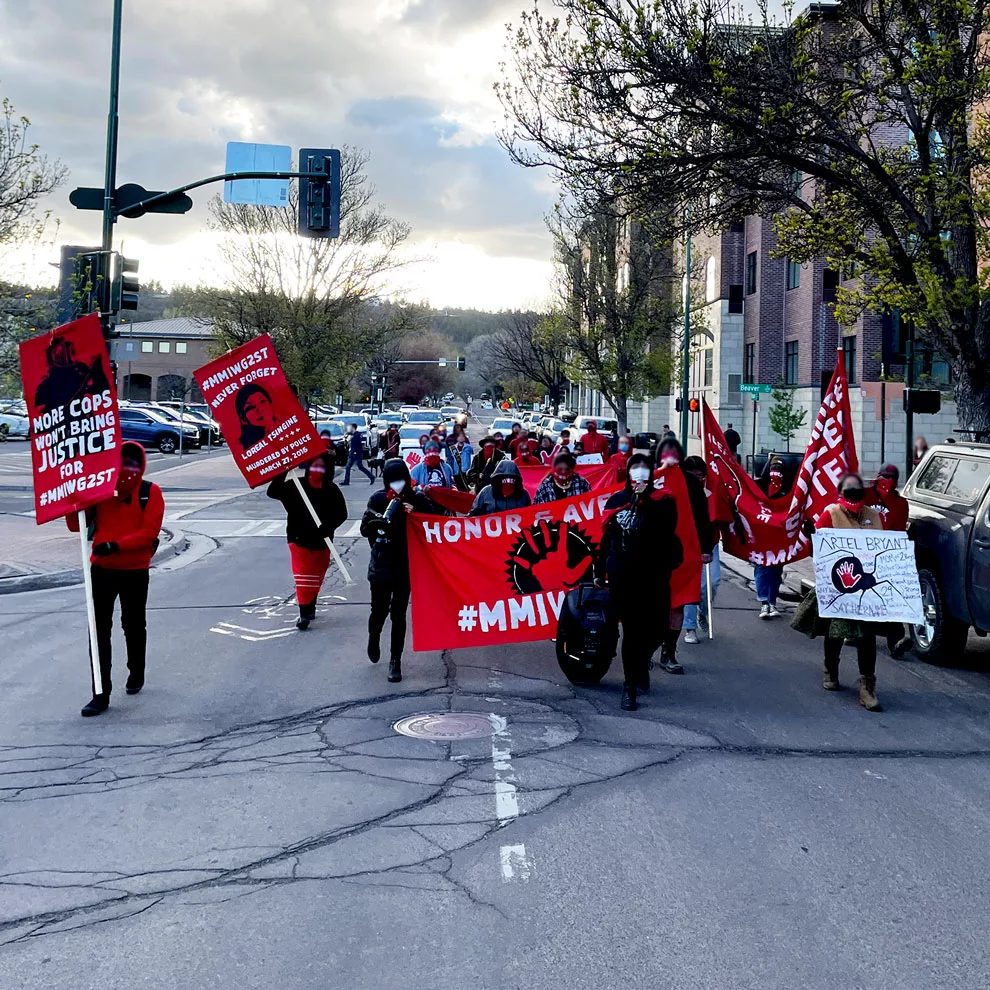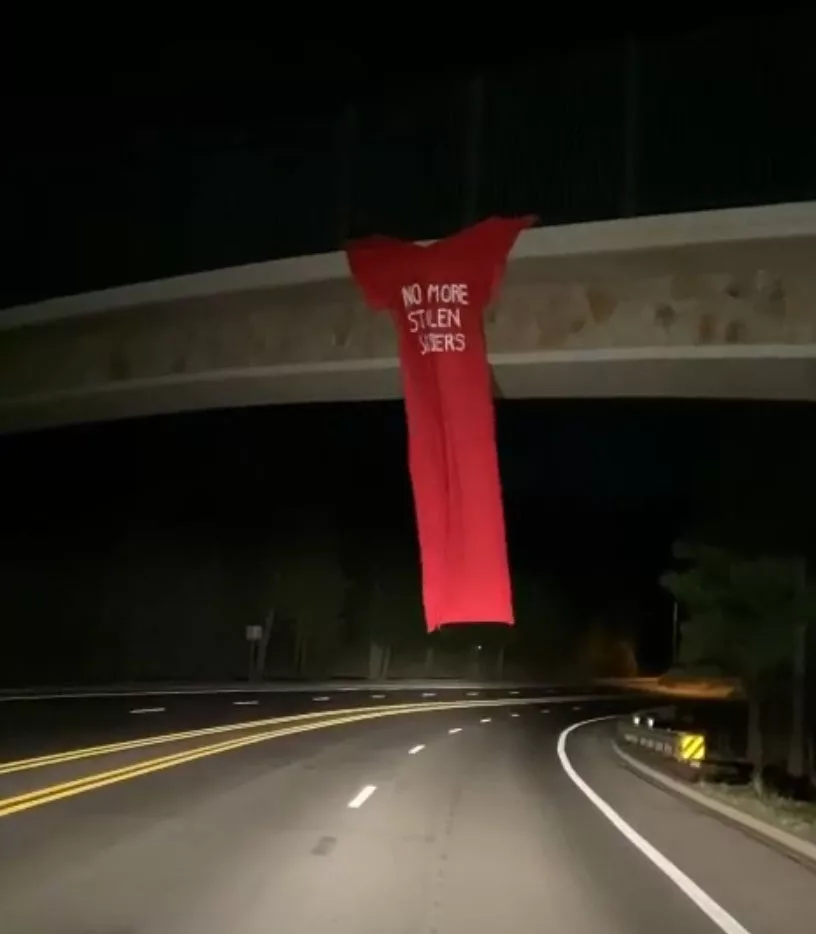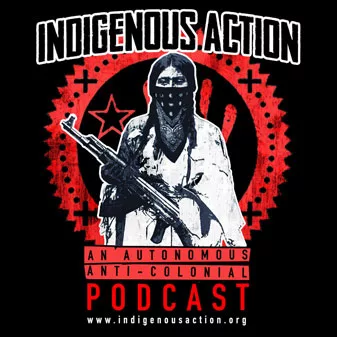Thursday, June 8th, 2023
Contact: Ox Sam Camp
Email: oxsamcamp@proton.me
OxSam.org
THACKER PASS, NV — On Wednesday morning, the Humboldt County Sheriff’s department on behalf of Lithium Nevada Corporation, raided the Ox Sam Newe Momokonee Nokutun (Ox Sam Indigenous Women’s Camp), destroying the two ceremonial tipi lodges, mishandling and confiscating ceremonial instruments and objects, and extinguishing the sacred fire that has been lit since May 11th when the Paiute/Shoshone Grandma-led prayer action began.
One arrest took place on Wednesday at the direction of Lithium Nevada security. A young Diné female water protector was handcuffed with no warning and loaded into a windowless, pitch-black box in the back of a pickup truck. “I was really scared for my life,” the woman said. “I didn’t know where I was or where I was going, and I know that MMIW is a real thing and I didn’t want to be the next one.” She was transported to Humboldt County Jail, where she was charged with criminal trespass and resisting arrest, then released on bail.
Just hours before the raid, Ox Sam water protectors could be seen for the second time this week bravely standing in the way of large excavation equipment and shutting down construction at the base of Sentinel Rock.
To many Paiute and Shoshone, Sentinel Rock is a “center of the universe,” integral to many Nevada Tribes’ way of life and ceremony, as well as a site for traditional medicines, tools, and food supply for thousands of years. Thacker Pass is also the site of two massacres of Paiute and Shoshone people. The remains of the massacred ancestors have remained unidentified and unburied since 1865, and are now being bulldozed and crushed by Lithium Nevada for a mineral known as “the new white gold.”
Since May 11th, despite numerous requests by Lithium Nevada workers, the Humboldt County Sheriff Department has been reticent and even unwilling to arrest members of the prayer camp, even after issuing three warnings for blocking Pole Creek Road access to Lithium Nevada workers and sub-contractors, while allowing the public to pass through.
“We absolutely respect your guys’ right to peacefully protest,” explained Humboldt County Sheriff Sean Wilkin on May 12th. “We have zero issues with [the tipi] whatsoever… We respect your right to be out here.”
On March 19th the Sheriff arrived again, serving individual fourteen-day Temporary Protection Orders against several individuals at camp. The protection orders were granted by the Humboldt County Court on behalf of Lithium Nevada based on sworn statements loaded with misrepresentations, false claims, and, according to those targeted, outright false accusations by their employees. Still, Ox Sam Camp continued for another week. The tipis, the sacred fire, and the prayers occurred for a total of twenty-seven days of ceremony and resistance.
The scene at Thacker Pass this week looked like Standing Rock, Line 3, or Oak Flat, as Lithium Nevada’s workers and heavy equipment tried to bulldoze and trench their way through the ceremonial grounds surrounding the tipi at Sentinel Rock, and water protectors put their bodies in the way of the destruction, forcing work stoppage on two occasions.
Observers stated that Lithium Nevada’s head of security was directing the Sheriff’s deputies where to go and what to do during the raid.
Lithium Nevada’s ownership and control of Thacker Pass only exists because of the flawed permitting and questionable administrative approvals issued by the Bureau of Land Management (BLM). BLM officials have refused to acknowledge that Peehee Mu’huh is a sacred site to regional Tribal Nations, and have continued to downplay and question the significance of the double massacre through two years of court battles.
Three tribes — the Reno-Sparks Indian Colony, Summit Lake Paiute Tribe, and Burns Paiute Tribe — remain locked in litigation with the Federal Government for permitting the mine. The tribes filed their latest response to the BLM’s Motion to Dismiss on Monday. BLM is part of the Department of the Interior which is led by Deb Haaland (Laguna Pueblo).
On Wednesday, at least five Sheriff’s vehicles, several Lithium Nevada worker vehicles, and two security trucks arrived at the original tipi site that contained the ceremonial fire, immediately adjacent to Pole Creek Road. One camper was arrested without warning, and others were issued with trespass warnings and allowed to leave the area. Once the main camp was secured, law enforcement then moved up to the tipi site at Sentinel Rock, a mile away.
There is a proper way to take down a tipi and ceremonial camp, and then there is the way Humboldt County Sheriffs proceeded on behalf of Lithium Nevada Corporation. Tipis were knocked down, tipi poles were snapped, and ceremonial objects and instruments were rummaged through, mishandled, and impounded. Empty tents were approached and secured in classic SWAT-raid fashion. One car was towed.
As is often the case when lost profits lead to government assaults on peaceful water protectors, Lithium Nevada Corporation and the Humboldt County Sheriffs have begun to claim that the raid was done for the safety of the camp members and for public health.
Josephine Dick (Fort McDermitt Paiute-Shoshone), who is a descendent of Ox Sam and one of the matriarchs of Ox Sam Newe Momokonee Nokutun, made the following statement in response to the raid:
“As Vice Chair of the Native American Indian Church of the State of Nevada, and as a Paiute-Shoshone Tribal Nation elder and member, I am requesting the immediate access to and release of my ceremonial instruments and objects, including my Eagle Feathers and staff which have held the prayers of my ancestors and the Ox Sam camp since the beginning. There was also a ceremonial hand drum and medicines such as cedar and tobacco, which are protected by the American Indian Religious Freedom Act.
In addition, my understanding is that Humboldt County Sherriffs along with Lithium Nevada security desecrated two ceremonial tipi lodges, which include canvasses, poles, and ropes. The Ox Sam Newe Momokonee Nokutun has been conducting prayers and ceremony in these tipis which are also protected by the American Indian Religious Freedom Act. When our ceremonial belongings are brought together around the sacred fire, this is our church. Our Native American church is a sacred ceremony. I am demanding the immediate access to our prayer site at Peehee Mu’huh and the return of our confiscated ceremonial objects.
The desecration that Humboldt County Sherriffs and Lithium Nevada conducted by knocking the tipis down and rummaging through sacred objects is equivalent to taking a bible, breaking The Cross, knocking down a cathedral, disrespecting the sacrament, and denying deacons and pastors access to their places of worship, in direct violation of my American Indian Religious Freedom rights. This violation of access to our ceremonial church and the ground on which it sits is a violation of Executive Order 13007.
The location of the tipi lodge that was pushed over and destroyed is at the base of Sentinel Rock, a place our Paiute-Shoshone have been praying since time immemorial. After two years of our people explaining that Peehee Mu’huh is sacred, BLM Winnemucca finally acknowledged that Thacker Pass is a Traditional Cultural District, but they are still allowing it to be destroyed.”
Josephine and others plan to make a statement on live stream outside the Humboldt County Sheriff’s Office in Winnemucca on the afternoon of Friday, June 9th around 1pm.
Another spiritual leader on the front lines has been Dean Barlese from the Pyramid Lake Paiute Tribe. Despite being confined to a wheelchair, Barlese led prayers at the site on April 25th which led to Lithium Nevada shutting down construction for a day, and returned on May 11th to pray over the new sacred fire as Ox Sam camp was established.
“This is not a protest, it’s a prayer,” said Barlese. “But they’re still scared of me. They’re scared of all of us elders, because they know we’re right and they’re wrong.”
###
Background
Thacker Pass is located in northern Nevada near the Oregon border, where Lithium Nevada Corporation is in the first phase of building a $2 billion open-pit lithium mine which would be the largest of its kind in North America. The lithium is mainly destined for General Motors Corporation’s electric car batteries, which the corporation laughably claims is “green.” Mine opponents call this greenwashing and have stated that “it’s not green to blow up a mountain.”
The U.S. Supreme Court has granted Lithium Nevada corporation and all other business corporations a whole variety of constitutional “rights” that were never meant for business entities. Without these special so-called corporate “rights,” the mine owners would never have been allowed to construct this mine.
Three Native American tribes filed a new lawsuit against the Federal Government over Lithium Nevada Corporation’s planned Thacker Pass lithium mine on February 16, 2023, the latest legal move in the two-and-a-half-year struggle over mining, greenwashing, and sacred land in northern Nevada.
The Tribes notified the 9th Circuit Court of Appeals on May 19th that they mean to appeal their Motion seeking a Preliminary Injunction which was rejected by a lower court in early March. Four environmental groups which lost their case in January have also appealed to the 9th Circuit Court of Appeals, and are expected to be heard in June.
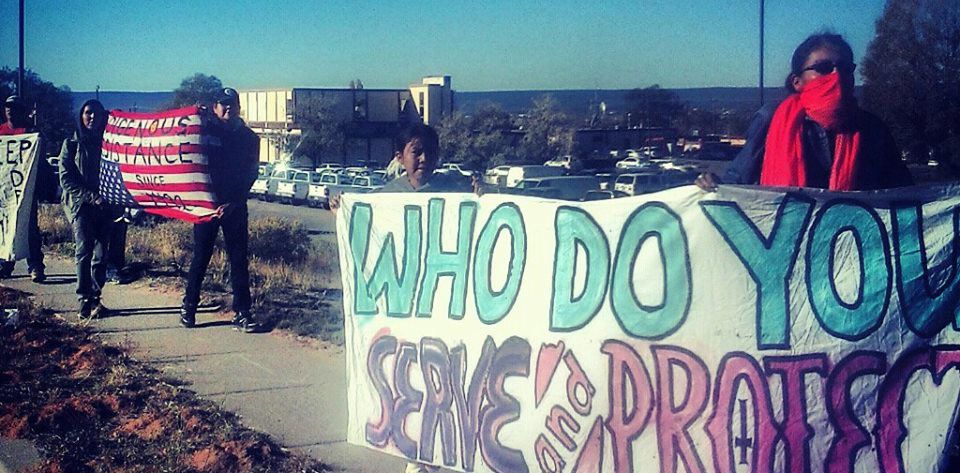

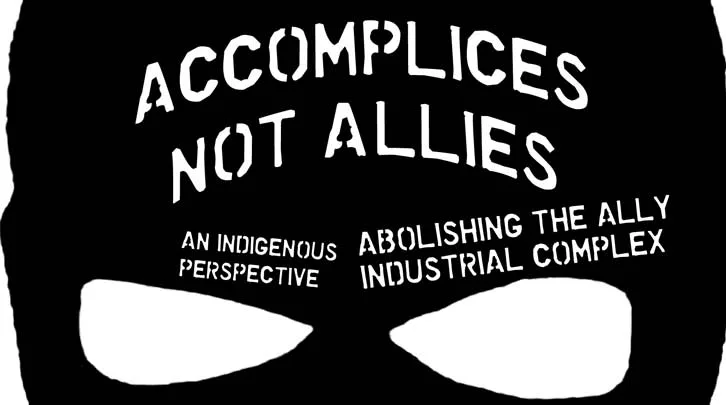

 Commentary & Essays10 years ago
Commentary & Essays10 years ago
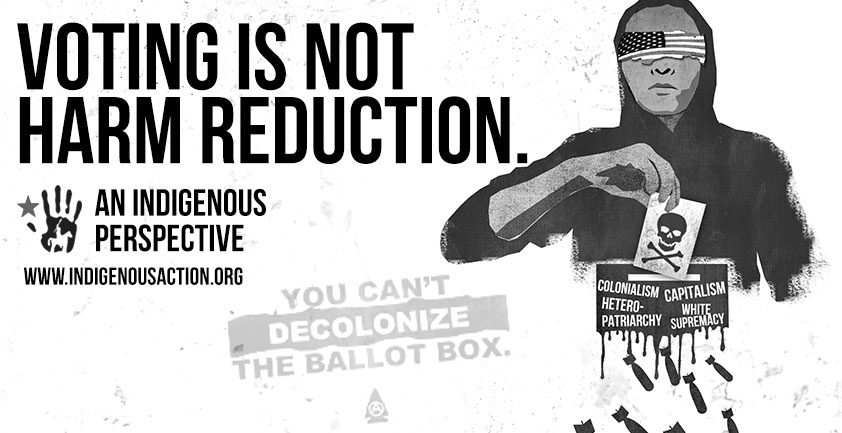

 anti-colonial4 years ago
anti-colonial4 years ago
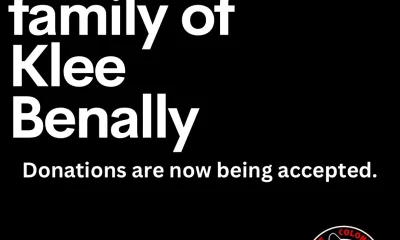

 Feature Front7 months ago
Feature Front7 months ago


 anti-colonial4 years ago
anti-colonial4 years ago


 #nonukes11 years ago
#nonukes11 years ago
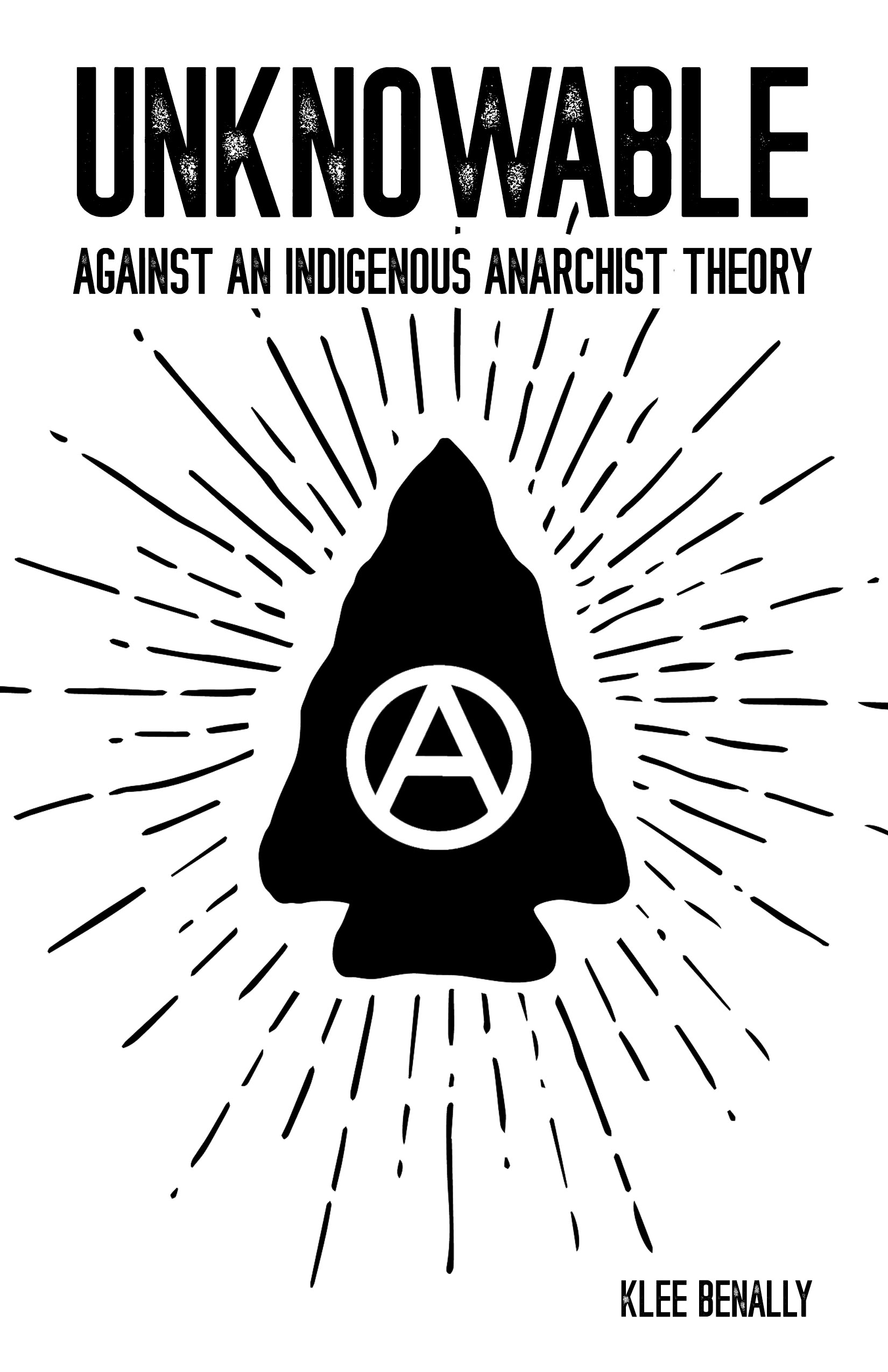

 anti-colonial3 years ago
anti-colonial3 years ago
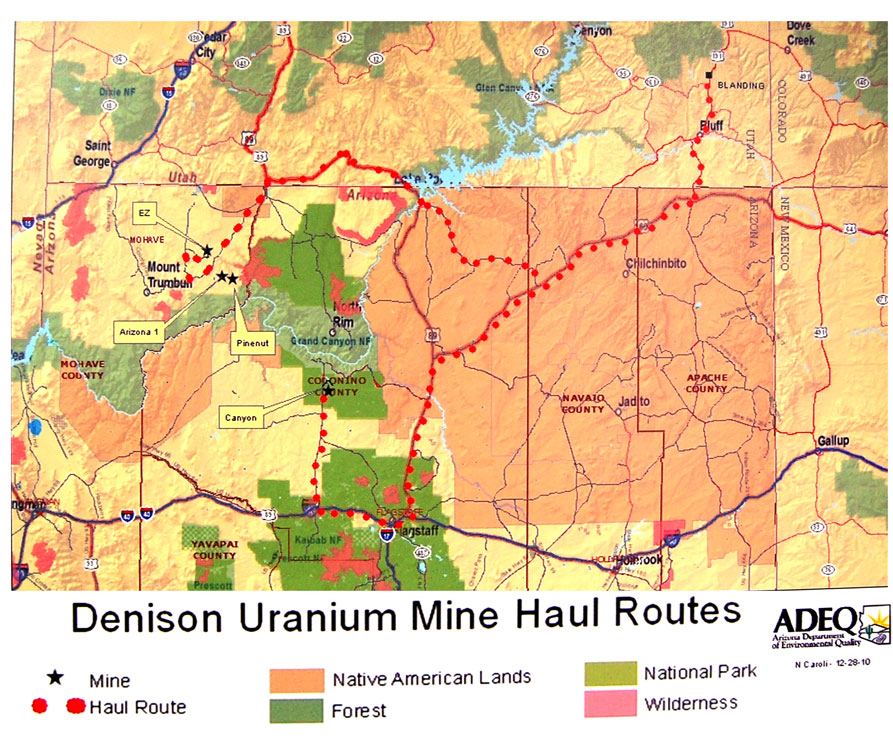

 #nonukes14 years ago
#nonukes14 years ago
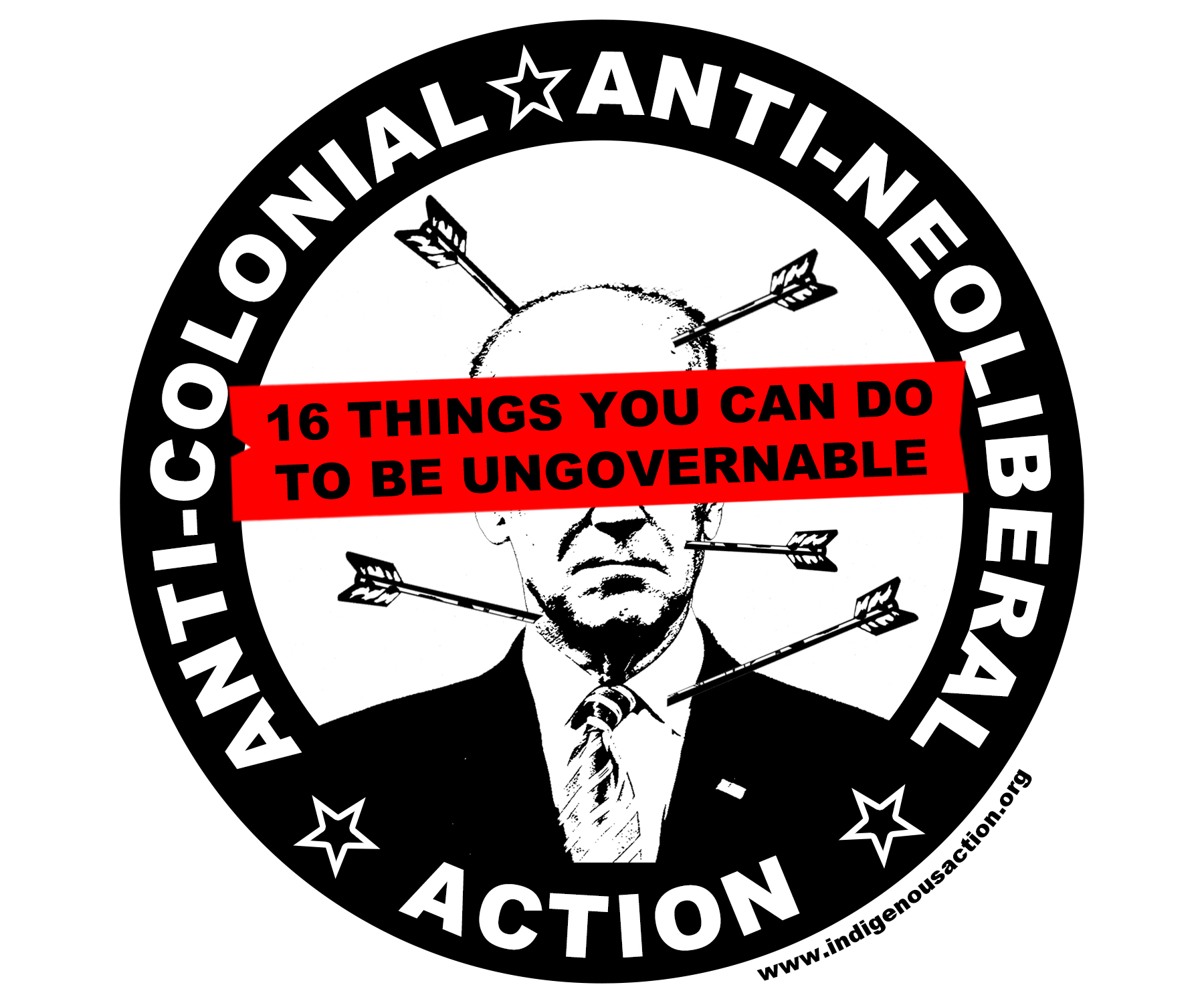

 #policestate4 years ago
#policestate4 years ago
